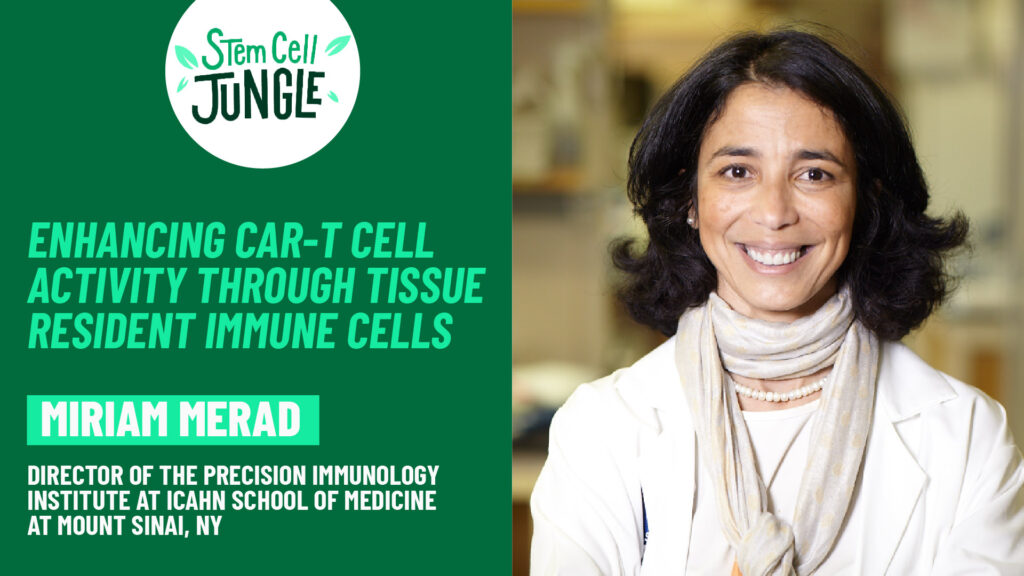Miriam Merad, MD, PhD, Oncologist and Director of the Precision Immunology Institute at Mount Sinai in New-York is an expert of tissue-resident immune cells in cancer. Here she highlights the rationale behind strategies targeting macrophages and dendritic cells with the aim of enhancing CAR-T and NK cells anti-tumor activity.
Transcript:
So CAR-Ts: you generate T cells that can recognize a tumor antigen. This is generated ex vivo. The T cells have been manipulated usually to recognize a [tumor antigen] through genetic manipulation. This is what we call a CAR. So, you introduce a CAR that allows the T cells to recognize, and when they recognize the tumor antigen they should kill. So you can hypothesize that they will not need any type of help, because those T cells are going to go directly to the tumor lesions, and then recognize the target and then kill the target. Now we realize that as soon as the T cells arrive in any type of tissue microenvironment, they’re going to be influenced by the cells that are in that microenvironment.
So there is a lot of interest, including in my laboratory, to use the microenvironment to further enhance CAR-T cells function. CAR-T cells work, but not 100% of the cases.
There has been dramatic successes, but there has been also a lot of failures, especially in solid tumors. And the focus now is to understand how we can really manipulate tissue-resident dendritic cells and macrophages, to enhance CAR-T cell function, and many of us are looking into this. There’s a big project that I’m doing in collaboration with several CAR-T cell groups looking at this specific question. It is a very valid hypothesis to think that these tissue-resident immune cells can have a tremendous impact on CAR-T cells and NKs. Because their role is to bring these T-cells in. And they have a privileged way of interacting with those T-cells so we should be able to harness them.


